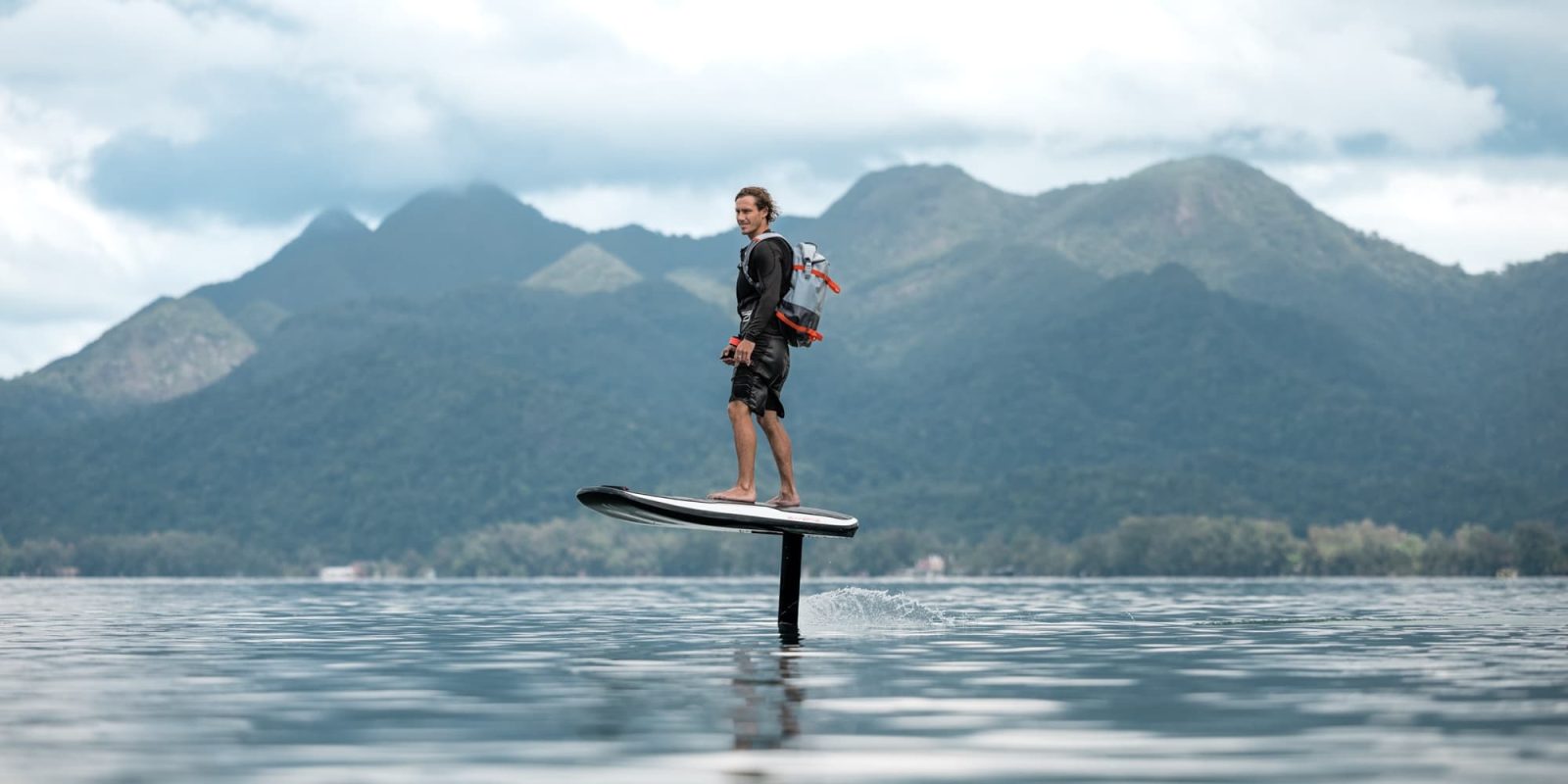
If you’ve been wanting to learn how to ride a flying electric surfboard but have been put off by what looks like a steep learning curve, then you’ll want to check out Awake’s new VINGA 3 electric hydrofoil board. The company just launched the eFoil board as a beginner-friendly platform for newcomers to the sport.
Hydrofoil electric surfboards, or eFoils, are similar to conventional electric surfboards yet have an additional hydrofoil wing under the water. This allows the surfboard to completely leave the water, often flying one to two feet (around half a meter) above the water’s surface.
Not only does it create a unique sensation that feels quite like flying, but it is also much more efficient. Whereas a typical electric surfboard’s battery might last for 45 minutes to an hour, an eFoil with the same battery can often surf for two hours or more.
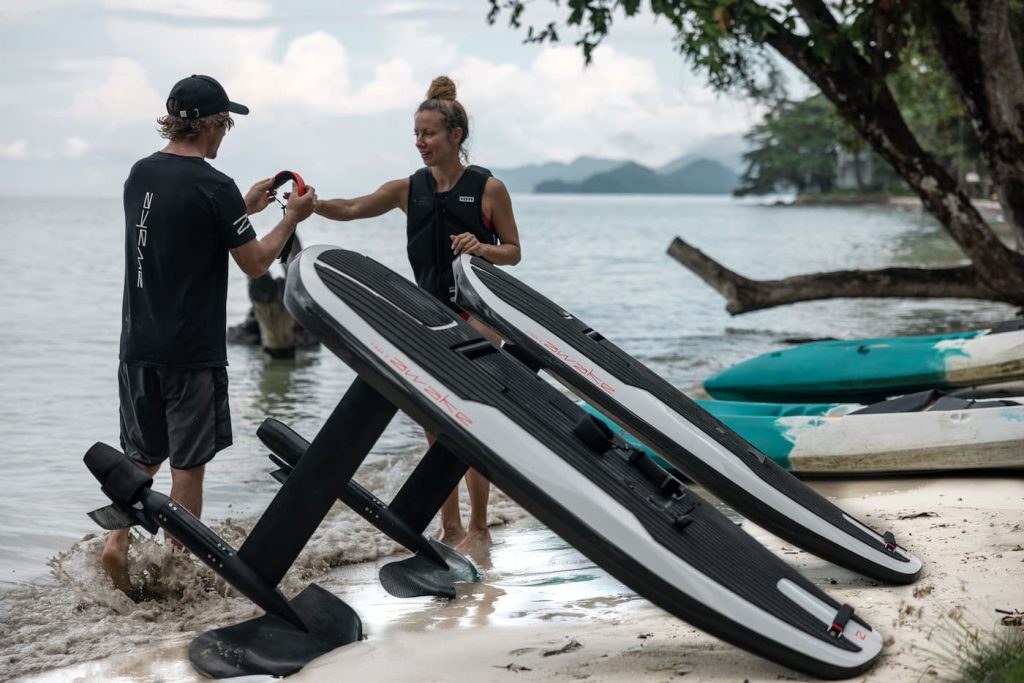
The Awake VINGA 3 follows on the heels of Awake’s last major launch less than a year ago, the VINGA, which is now renamed as the VINGA S. That sportier eFoil took advantage of the Swedish high-performance electric surfboard company’s technology to create a similarly high-performance electric hydrofoil board.
The original VINGA saw impressive leaps through the air under the capable feet of talented riders, though it wasn’t exactly the easiest board to learn to ride.
That’s something I discovered myself this past summer on a trip to Stockholm when I experienced several seconds of blissful flight followed by repeated less-than-gentle reentries into the water, usually face first.
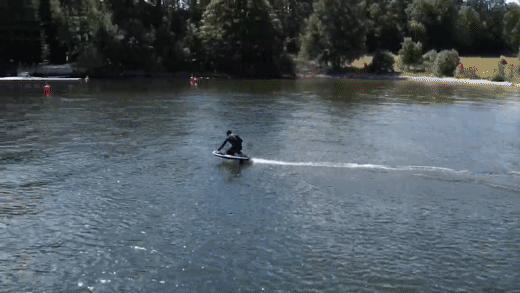
The move also follows Awake’s playbook for its high-performance electric surfboards.
The company first released its higher-performance RÄVIK S e-surfboard that could carve aggressively and reach speeds of up to 37 mph (60 km/h).
But that board also proved more appropriate for experienced riders than absolute beginners. So Awake followed it with the RÄVIK 3, a wider and more beginner-friendly board that was still powerful and capable but was designed to be more stable in order to offer an easier learning curve.
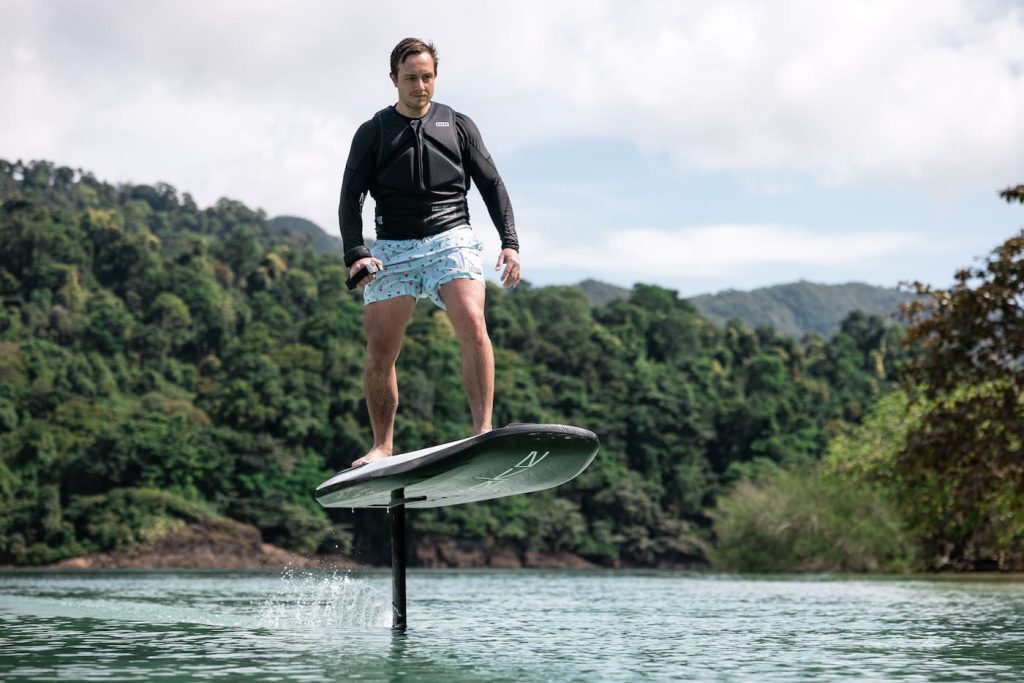
Again, that proved to be exactly my experience when I took to the RÄVIK 3 in minutes, succeeding to stand up and surf it on my first try. But the higher performance RÄVIK S was more difficult for me to master on the first ride.
And that’s exactly the goal of the Awake VINGA 3, which the company touts with the tagline of “30 seconds to set up, 5 minutes to fly – you’ll be cruising within the first session.”
Using Awake’s “Click-to-Ride system,” the VINGA 3 features a snap-together locking mechanism to mount the eFoil without screws, cables, or hatches. That also means that the disassembled board is easy to transport to the beach or lake in the trunk of a car or even on a bicycle or moped.
The VINGA 3’s double concave hull is said to offer increased stability, and the board’s beginner-friendly safety features include the shielded jet propulsion, soft rails, and rounded wings. The battery is also compatible with all of Awake’s other boards, meaning a VINGA 3 owner could upgrade to another board or add to their collection without having to buy another battery.
To see it in action, check out the launch video below.
I spoke about the launch with Awake’s brand and sales coordinator, Flo Garbaccio, who also happened to be the guy who taught me to surf Awake’s boards last summer. Garbaccio does double duty as one of Awake’s professional surfers (which makes sense as I’ve seen him jump these boards meters in the air), so he worked closely with Awake’s R&D team on the development of the VINGA 3.
Garbaccio described how the board was designed to be even more accessible while still maintaining the same playful and high-performance style of Awake’s other electric surfboards. He says that the board is even easier to learn than the RÄVIK 3 that I took to in minutes, which is quite promising for someone like me who enjoys electric surfboards but finds the hydrofoil versions to be more difficult to ride.
As Garbaccio explained:
To compare with the VINGA you tried last summer, this board is bigger with more floatation, and so it is ultra quick to learn on if you are a total beginner in the sport. They both still share the same drive unit (mast and motor), and the same wings and battery. The shape has been designed with a lot of attention to detail regarding the volume distribution and the space to move your body, in order to forgive the classic mistakes you would do when learning how to eFoil. To give an example, I took a 73 year old man for his first time ever on a board and he was flying within just 5-10 minutes!
The VINGA 3 starts at €12,900 for the lighter SR battery, which is described as being more playful and agile. The larger XR battery has an additional €2,500 price tag. That battery can offer up to two hours of ride time, which Awake says makes it better for coast explorations or rental centers.
All of those prices exclude European VAT. Orders for the new board open today, and the first deliveries will take place in April 2023.
For a chance to see what it’s like to learn how to ride an electric surfboard, check out my video below of my first-ever test of Awake’s different boards. Jump to around 5:17 for when I started on the VINGA hydrofoil e-board.
Electrek’s Take
Wow, I’m super excited about this launch.
When I test rode the RÄVIK 3, that was probably the most fun I’ve ever had on an electric surfboard. And I’ve tested several of them from various manufacturers.
The VINGA was also fun, but it was frustrating too because, despite being able to ride it seated, I would always wipe out within a few seconds of standing up. And I really wanted to master it since it looked like so much fun when experienced riders flew around on it.
But it sounds like the VINGA 3 is the answer for beginners just like me, bringing the quick-learning design of the RÄVIK 3 to the VINGA’s eFoil platform.
I cannot wait to test out the new VINGA 3. After all of those face-first wipeouts, I feel like this is going to be my sweet redemption.
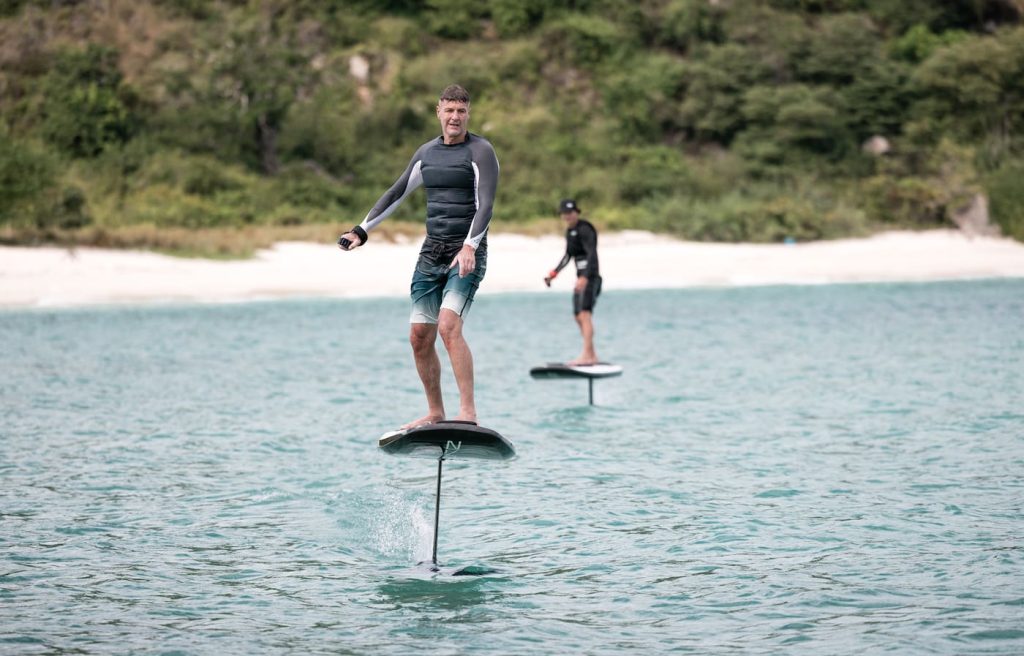
FTC: We use income earning auto affiliate links. More.





Comments